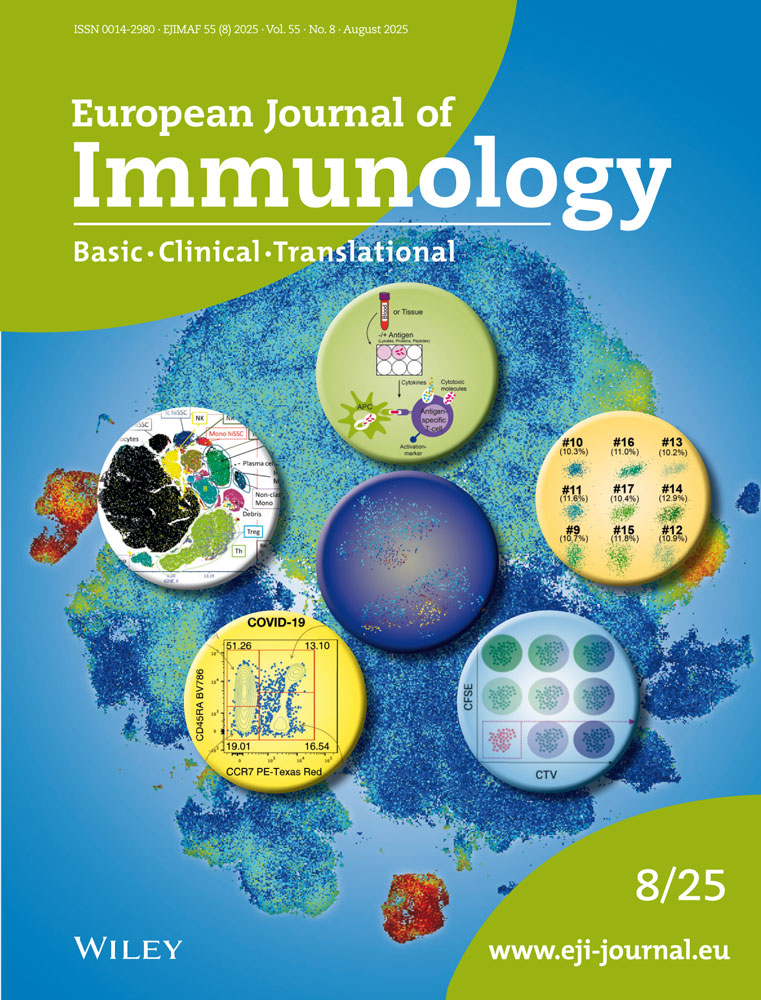Differential requirements for the processing and presentation of soluble and particulate bacterial antigens by macrophages
Abstract
The requirements for antigen processing and presentation by macrophages using various forms of antigens derived from Listeria monocytogenes have been studied. Antigen presentation was monitored by T cell-macrophage binding and interleukin production using T cells from Listeria monocytogenes-infected mice and specific T cell hybridomas. Antigen processing requirements were defined by three criteria: (a) inhibition by lysosomotropic agents, NH4Cl and chloroquine; (b) kinetic relationships between antigen uptake and antigen presentation; and (c) antigen presentation by macrophages pre-fixed with glutaraldehyde. In comparing heat-killed Listeria monocytogenes (HKLM) with soluble listerial proteins (SLP), the presentation of SLP was less sensitive to lysosomotropic agents, showed faster antigen processing kinetics than with HKLM and could occur using pre-fixed macrophages. Transitions between particulate and soluble forms had dramatic influences on processing requirements. Antigens associated with HKLM could be converted to soluble forms which did not require processing by preculture with macrophages and also by physical (e.g. sonication) and chemical (sodium dodecyl sulfate) treatments in the presence of protease inhibitors. Conversely, antigen processing was required when SLP were converted to a particulate form by covalent binding to latex beads. Analysis of SLP by molecular sieve chromatography and preparative SDS-polyacrylamide gel electrophoresis revealed that high molecular weight proteins (> 60 kDa) could be presented by prefixed macrophages without prior processing. We conclude that the transition from a particulate to soluble antigenic form can be a significant antigen processing event.




